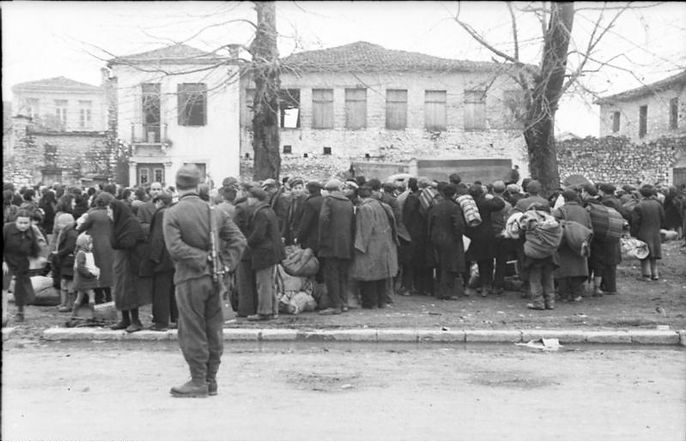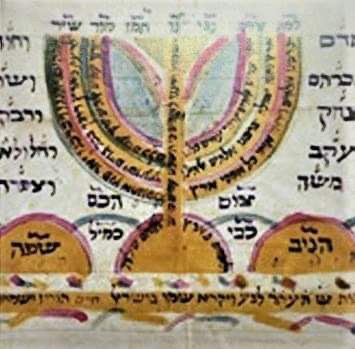At the beginning of World War II, the Jewish community of Ioannina numbered about 2,000. Most were small business owners. Many were poor. Families were large and patriarchal: marriages were arranged. The community was conservative in nature and religiously observant. Their daily life revolved around their synagogues and the Jewish religion. There was little upward mobility: young men automatically entered the professions of their fathers, almost none continuing their education after high school. Young women ended their education even earlier and remained at home until married, with only a handful actually working outside of the house, usually in domestic occupations, such as seamstress.
War hit the community in 1940, as Greece entered World War II fighting off the attempted Italian invasion on the Albanian Front. The young men of Ioannina served their country with pride, some sacrificing their lives for their country. As of April of 1941, Ioannina was in the Italian Zone of Occupation, as the Germans divided Greece among their allies. Comparative calm set in. Life went on as usual.
Marriages took place and babies were born. Some, very few, sensed danger, especially after word of the deportation of the Jewish community of Salonika reached the small city of Ioannina, and fled the city for Athens. However, according to Joseph Nehama, historian of Thessaloniki Jewry, most of the Jews in Ioannina thought the Jews of Thessaloniki were deported because the Jews of Thessaloniki, Sephaew Jews, did not observe the Sabbath wich caused divine anger. So, most stayed, also because it was not easy to leave as there were many young children to think of. A few young men went to fight with the Resistance Movement in the mountains, but many returned when the Germans entered the city during the summer of 1943 and threatened reprisals against their families. With the capitulation of Mussolini in September of 1943, Ioannina came under German control. The days of the community were numbered.

Now, it became almost impossible to escape. The first German troops in Ioannina arrived on April 20, 1943 and were members of the Adolf Hitler division. For this time they left after 20 days and nothing in regard to the Jewish population occurred. However, in June of 1943 German troops came to Epirus under the command of Lieutenant General Hubert Lanz. He was in Ioannina to demoralize the partisans to weaken their attacks on the Germans. Responsible for the operation against the Jewish Community was Von Stettner, commander of the Edelweiss Division, part of the German Wehrmacht. They established their headquarters in the Zosimia School.
Soon, they realized the most important Jew in Ioannina was Sabethai Cabilli, Vice President of the Ioannina Chamber of Commerce and the one, who, although not an ordained rabbi, held the services on the Sabbath and holy days. So one day Von Stettner, accompanied by a Greek, visited Cabilli at his store. By saying that the Ioannina Jews are different than the Thessaloniki Jews he wanted Cabilli to believe that he considers them more a Greek than a Jew and with that assured him that the Germans won’t harm the Jews of Ioannina.
The first indication of this being a lie, took place three weeks after the Germans arrived in the city. On August 20, at 5 pm the Germans surrounded the area outside of the city walls where the New Synagogue, the Alliance Israelite Universelle Schools and multiple wealthy homes were located. They arrested two men and detained them for two hours in the Zosimia school. Then, until March, the Germans stayed silent. But on March 1, 1944 the Germans arrested the president of the Ioannina Jewish Council, Dr. Moses Coffina and three other members of the Jewish Council. On March 17, 1944 the still imprisoned Dr. Moses Cabilli managed to conceal a note inside a piece of bread and smuggle it out to his wife. It stated that guards told him that they had been arrested “because they would not cooperate” and that soon “the whole community will be arrested.”(The Jews of Ioannina, Rae Dalven). His wife delivered this note to Cabilli but he ordered not to talk about it with anyone.
A week later on a cold March day, March 25th, Greek Independence Day, which that year also coincided with the onset of Pessah, German soldiers awakened the Jews. They had put crosses on Christian homes so that they don’t arrest any Christians. In the cold of the morning, with snow on the ground, only given time to gather a few possessions, the community was assembled on Mavilis square by the Ioannina lake. They would then be placed on trucks and taken to Larissa, where they would be kept for over a week before being placed in cattlecars and sent to the death camp of Ausschwitz-Birkenau. They would arrive on April 11, 1944. Most would go directly to the gas chambers, only 181 survived: 112 people, who survived the Genocide and 69 who saved themselves by hiding or taking to the mountains.

1 thought on “The Holocaust in Ioannina”
Comments are closed.